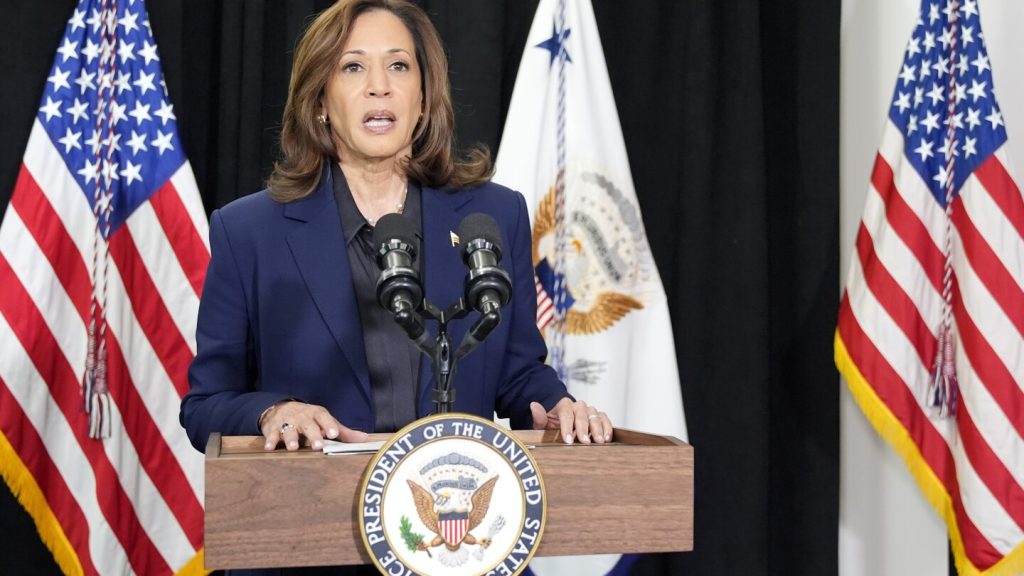With the 2024 Election looming, the crisis in the Middle East is taking center stage in the race for the White House. Vice President Kamala Harris and former President Donald Trump are both vying for the votes of Arab and Muslim American voters, as well as Jewish voters in battleground states like Michigan and Pennsylvania. Harris has faced criticism and praise for her comments regarding the conflict, trying to balance support for Israel with condemnation of civilian casualties among Palestinians caught up in the wars against Hamas and Hezbollah. On the other hand, Trump insists that he can resolve the conflict quickly if elected, claiming that none of this would have happened on his watch.
Harris’s campaign has clarified that she does not accuse Israel of genocide, despite the perception from some of her remarks. The vice president has been attempting to strike a more empathetic tone towards all parties involved in the conflict, while also recognizing the suffering of civilians in Gaza. Meanwhile, Trump has been making bold promises of bringing peace to the region if elected, warning that a Harris presidency could lead to a deterioration of the situation in the Middle East. These contrasting approaches reflect a divide between thoughtful diplomacy and showmanship on the campaign trail.
As the political divisions on the campaign trail deepen, the implications post-Election Day remain significant, especially for powers in the region like Israel’s Benjamin Netanyahu. A recent AP-NORC poll reveals that neither Trump nor Harris has a clear advantage on the Middle East situation in the eyes of registered voters. While about 4 in 10 say Trump would handle the crisis better, a similar share believes the same about Harris. The issue also highlights some weakness for Harris within her own party, with only about two-thirds of Democratic voters backing her on handling the situation in the Middle East.
In Michigan, home to a large Arab American population, the impact of the Israel-Hamas conflict is deeply felt within the community. The direct consequences of the war have led to calls for the U.S. to intervene and push for a cease-fire and arms embargo on Israel. Despite both parties largely supporting Israel, much of the blame has been directed at Biden, causing some Arab American leaders to lose confidence in Harris due to her perceived alignment with his policies. Super PACs are targeting Arab and Jewish voters in Michigan and Pennsylvania, respectively, highlighting Harris’s stance on Israel and its implications for the region.
Harris’s spokesperson has portrayed Trump’s Middle East approach as dangerous and chaotic, warning that his unchecked behavior could lead to instability and harm American interests. The contrasting strategies of Harris and Trump in handling the Middle East crisis come at a critical juncture in the election campaign, with both candidates seeking to sway voters by presenting their visions for peace in the region. The outcome of the election will have far-reaching consequences for U.S. foreign policy in the Middle East and the future of the conflict between Israel and its neighbors.


